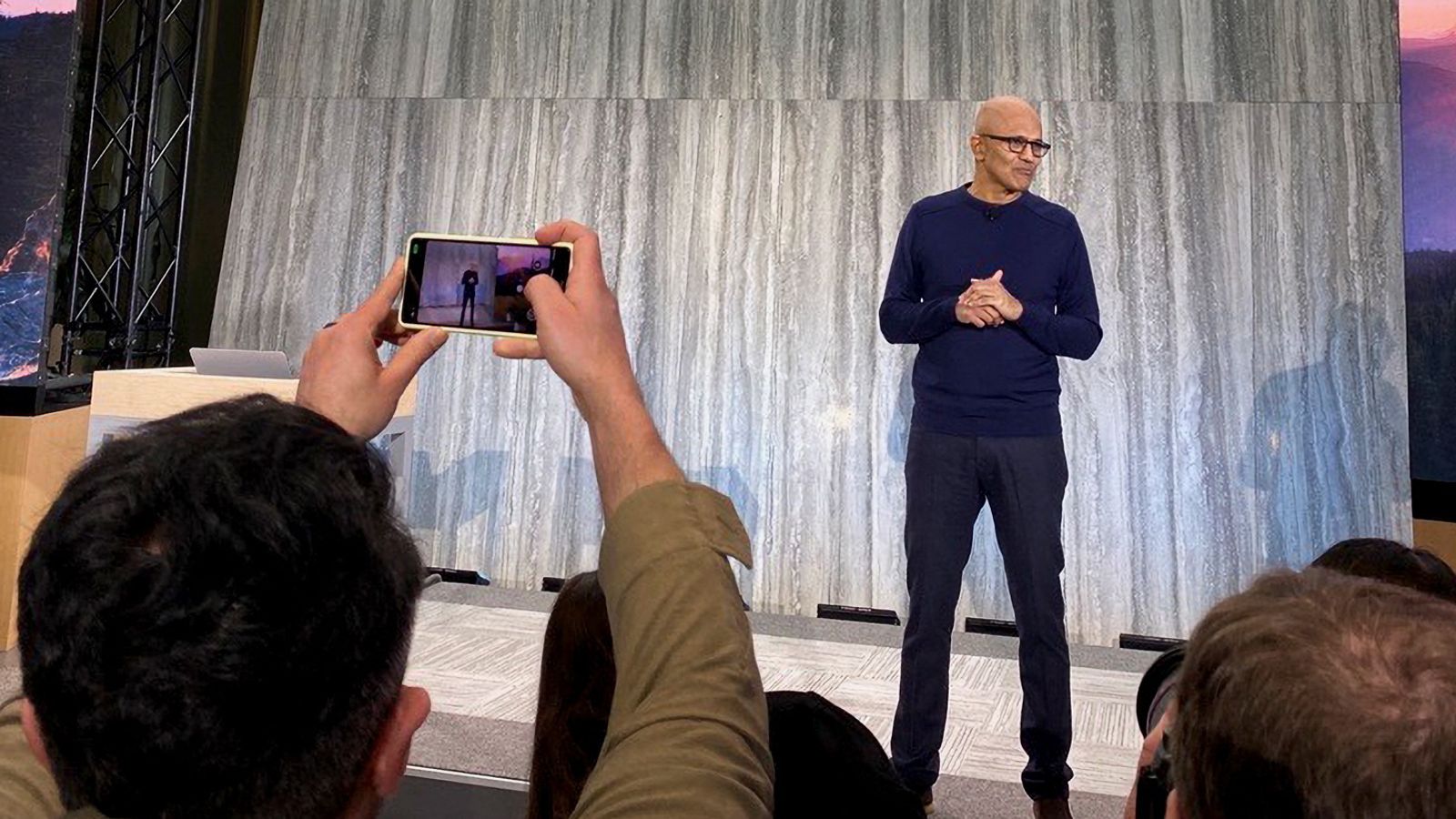Microsoft has revealed a revamped Bing search engine powered by chatbot technology as an AI arms race with rival Google hots up.
The Windows, Office, and Xbox maker is also giving its Edge web browser an update following a multibillion-dollar investment in OpenAI, which took the world by storm last year by releasing ChatGPT.
While Microsoft has long been a giant of the computing industry, it has lagged behind Google when it comes to its search engine and web browser – with Chrome the global favourite.
It hopes its own chatbot – a large language model like ChatGPT, which is trained on a huge amount of text data to generate answers, summarise information and carry out realistic conversations – will give it a boost.
At a launch event for the new AI-powered services, senior Microsoft figures said the search experience had not changed for 20 years, in a dig at its rivals.
Microsoft has suggested the new features could be available to use within weeks.
How will it work?
Microsoft – an early investor in OpenAI – has described its new Bing features as “an AI copilot for the web”.
Rather than just returning a list of websites and adverts, results pages will also have a sidebar where a chatbot will provide more detailed answers.
For example, searching for a recipe won’t just give you a list of relevant websites – it might also write one for you.
Bing will also seek to review its search results and compile information into a single, digestible answer.
And there will be a very ChatGPT-style chat experience, separate from the main search engine, where you can have back-and-forth conversations about a topic of your choosing.
Will this really tempt people to use Bing?
That’s the million (or multibillion) dollar question, especially given that Google has become so synonymous with searching the web that it has become a verb.
We don’t just look it up, and we certainly don’t “Bing it”, we “Google it”.
Microsoft is counting on its belief that its AI tech is the best – it says the new Bing is running on a “next-generation large language model that is more powerful than ChatGPT”, which it has dubbed Prometheus.
“This technology is going to reshape pretty much every software category,” said Microsoft boss Satya Nadella at the company’s headquarters in Redmond, Washington, on Tuesday.
But Google is also looking to harness similar tech in its products, announcing its own conversational AI service named Bard earlier this week.
Mr Nadella appeared bullish, though, declaring: “The race starts today.”
Is AI going to change how we search the web?
Google and Microsoft are certainly betting on that being the case, having seemingly been spooked by the sudden success of ChatGPT when it was released in November – amassing more than 100 million users already.
It quickly had some users predicting the downfall of traditional search engines, as the upstart chatbot threatened to upend how people prepare for job interviews, journalists write stories, and children do homework.
Search engines will look to beat it by staying up to date with current affairs, which ChatGPT cannot do.
The new Bing, for example, will draw on real-time news and updates, and can also provide references for where it’s sourcing information from – addressing a criticism of ChatGPT, which sometimes get its facts wrong.
Startup search engines, like Neeva and You.com, are also looking to leverage chatbots to tempt users away from the usual suspects and take a place in the AI arms race.
Neeva’s chief executive Sridhar Ramaswamy, formerly Google’s advertising tsar, told Sky News last month that he believed “a platform shift” was on the cards.
Read more:
How AI could change the way we search the web
Please use Chrome browser for a more accessible video player
Can I try the new Bing now?
Microsoft is already rolling out its new-look search engine but you will have to join a waiting list before you can try it.
In the meantime, it has already been implementing ChatGPT into its Teams software to do things like summarise meetings and offer shortcut responses in chats.
Google’s Bard is also being rolled out slowly, first to its “trusted users” before a full release in the coming weeks.
The search giant was due to announce more details about its plans for AI at an event in Paris on Wednesday.








